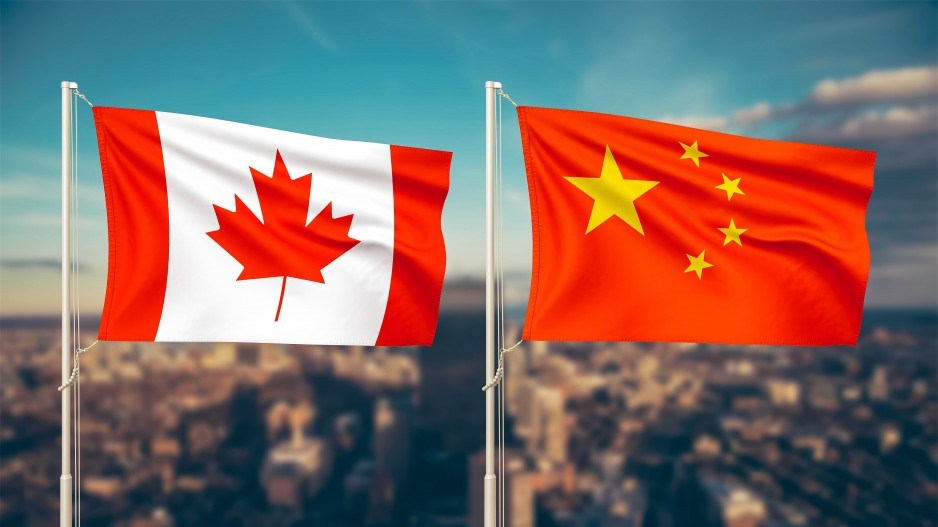For the few non-Chinese-Canadian B.C. companies that took part in the recent China International Import Expo in Shanghai, there is a sense that general Canadian interest for doing business with the Chinese market continues to be low due to continuing Ottawa-Beijing tensions.
But for these companies that have already taken the plunge, there are also no plans to pull back even given the continuing transpacific chill.
“We’ve gotten onto this freight train, and it’s now rolling down the track,” said Calvin Kania, CEO of Nanaimo-based fur company FurCanada, who attended this year’s Shanghai expo again after participating in last year’s inaugural edition of the event. “It doesn’t make sense to jump off now; so as long as they welcome us, we will continue to go.”
The expo, a major initiative under Chinese President Xi Jinping to answer foreign businesses’ concerns about other countries’ growing trade deficits with China, takes place annually in early November. It drew 30 B.C. companies to Shanghai this year, up from 18 in 2018. Chinese consul general in Vancouver Tong Xiaoling confirmed companies included those from the agri-food, health care, logistics and technology fields, adding that several companies have already begun applying to attend the 2020 exhibit.
“This shows that at the moment, when China-Canada relations are facing difficulties, our bilateral trade relations are still developing steadily,” Tong said in a speech prior to sending off the B.C. delegation in November.
Canada-China relations have been in a deep-freeze since December 2018, when Huawei Technologies Co. Ltd. CFO Meng Wanzhou was arrested in Vancouver on an extradition request by the United States. While Meng undergoes her extradition process in B.C., Beijing has arrested two Canadians and effectively blocked Canadian canola and red meat from entering the Chinese market.
Most B.C. companies that took part in the 2018 import expo had existing Chinese links, either through Chinese-Canadian owners or executives who have long worked in China’s business circles. Kania, himself a 32-year veteran of the Chinese market for Canadian fur, said he has talked to other Vancouver Island businesses about going to the expo, but many were concerned about personal safety and the geopolitical situation.
“That is a concern to all of my associates and friends in business who we’ve talked to,” he said, noting companies were already wary of the language barrier, shipping costs, red tape and other hassles that are absent or far less problematic when exporting to the United States. “People steer clear of the market just because of that. When I gave the info about this year’s expo to Nanaimo’s chamber and asked if anyone else was interested, the response appears to be ‘No, there doesn’t appear to be any interest.’”
But for Canada’s fur industry with its 60,000 workers and $1 billion contribution to the Canadian economy, China has been a lifesaver, Kania said. “My experience was that when the United States went into a downturn in 2008,... because we were in China, whatever business we lost – which was almost all of it – China picked it up immediately.
“If it wasn’t for China, there would be no Canadian fur trade today,” Kania added. “We would have been finished back in the 1990s because we lost market share in North America, Europe and elsewhere.… China came along at the right time, and so did Japan and South Korea to a lesser degree, but it was a saviour for the industry.”
For other foreign businesses working in China, however, skepticism remains over both the expo and what it means in reality in terms of actually lowering trade barriers. The European Union Chamber of Commerce in China, for example, polled its members on the deals signed at the 2018 expo and found only 53% of those deals came to fruition. (According to Chinese statistics, Canadian companies signed 48 deals amounting to $1.67 billion at the same event last year.)
Andreas Schotter, associate international business professor at Western University’s Ivey Business School and a former expat executive in China, said that while the expo’s symbolic gestures are substantial and western companies remain committed to the Chinese market, there is “in general more skepticism or realism from foreign investors and vendors as they see little change in structural problems” such as China’s favourable treatment of state-owned companies.
EU Chamber of Commerce in China spokesman Zhang Yichi said data on members’ attendance at this year’s expo is not yet available, but added that “while European business continues to push for systemic reforms, they remain committed to China.… The majority of our members still rank China as a top-three destination for their current and future investment, and 65% of members said they were likely to increase investment in China if greater market access were to be granted.”
Former U.S. diplomat Sean King, currently senior vice-president at New York-based consultancy Park Strategies, said that while he is recommending that western businesses look for markets with business and social values like Canada’s to expand trade, Beijing’s recent actions against Canada haven’t deterred other countries from pursuing deeper economic links with China.




